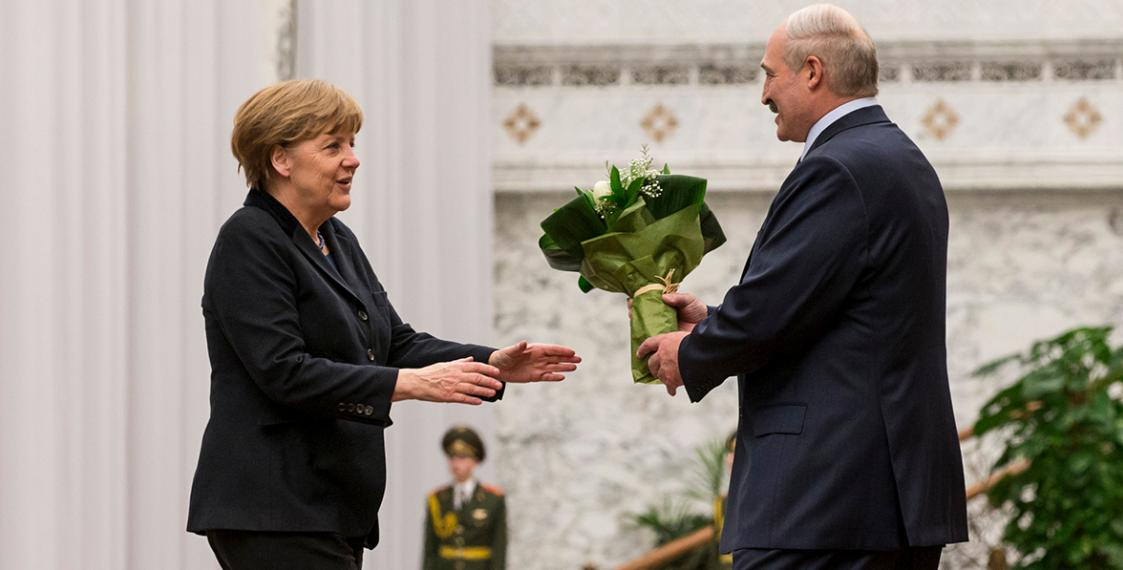The EU opens technical dialogue with the Belarusian regime but does not recognise its legitimacy
 The situation has not changed
The situation has not changed

The Belarusian regime was able to use the escalation of the migration crisis on the Belarusian-EU to prompt indirect negotiations regarding conditions for de-escalation of the situation. Although this technically constitutes dialogue, Brussels and other Western capitals are not going to fulfil the main requirements of the Belarusian regime – recognition of Lukashenka’s legitimacy and the lifting of sanctions.
The escalation by the Belarusian regime of the migration crisis on November 15-16th achieved some tactical success and forced the EU to reopen crisis communication channels with Minsk.
Lukashenka’s discussion with the outgoing acting Chancellor of Germany, Angela Merkel, acting as a mediator between Belarus and the EU, confirmed earlier conjectures about regime goals. In exchange for remediation of the migration crisis, Lukashenka set two conditions: lifting sanctions and recognising himself as president. He also requested financial assistance to arrange emergency shelter due to the possibility of an even more significant influx from Afghanistan. He demanded that the EU take half of these migrants. The parties also “agreed that the problem as a whole should be brought to the level of Belarus and the EU, while the relevant officials, who will be identified from both sides, will immediately enter into negotiations to resolve the existing problems.”
As a result, the European Commission agreed to hold technical talks with Belarus, UNHCR and the International Organization for Migration (IOM) on the repatriation of migrants and allocate 700 thousand euros for humanitarian assistance.
Such negotiations do not indicate that the EU recognises the legitimacy of Lukashenka, and nor does Germany, which is acting as a mediator solely due to humanitarian considerations. The European Commission denied negotiating with Lukashenka and accused him of conspiring with international criminal human trafficking networks. EU High Representative for Foreign Affairs and Security Policy Josep Borrell stressed that shipping people to the border would not help the Belarusian authorities to resume direct political dialogue with the European Union. The dialogue will be resumed if the Belarusian authorities cease violations and begin to respect human rights.
However, in a telephone conversation with Lukashenka, Angela Merkel refused to accept migrants from the Belarusian-Polish border in Germany.
Meanwhile, the EU has reached a political agreement on introducing the fifth package of sanctions against the Belarusian regime. The finalisation of the package is expected in the coming days. Despite some de-escalation of the migration crisis, Belavia is still a listed sanctions target, implying the termination of leasing contracts. In addition, the United States continues to closely monitor the situation is preparing new sanctions against the Lukashenka regime in close coordination with the EU, other partners and allies.
Western countries (the United States, Germany and France) again called on the Russian leadership to pressure Lukashenka, involving the Kremlin in finding a joint solution to the Belarusian issue.
Once migrants are evacuated to third countries in coordination with international and humanitarian organisations, the EU will continue to increase sanctions pressure together with Western allies until baseline requirements are met. This may overturn any temporary stabilisation of relations and push Minsk to search for other ways to exert pressure on the EU due to the utility of migration blackmail having expired.
Subscribe to our newsletter




Situation in Belarus
Constitutional referendum: main consequences


 Video
Video
How to count the political prisoners: are the new criteria needed?


 Video
Video
Paternalism In Decline, Belarusian Euroscepticism, And The Influence Of Russia


 Video
Video












